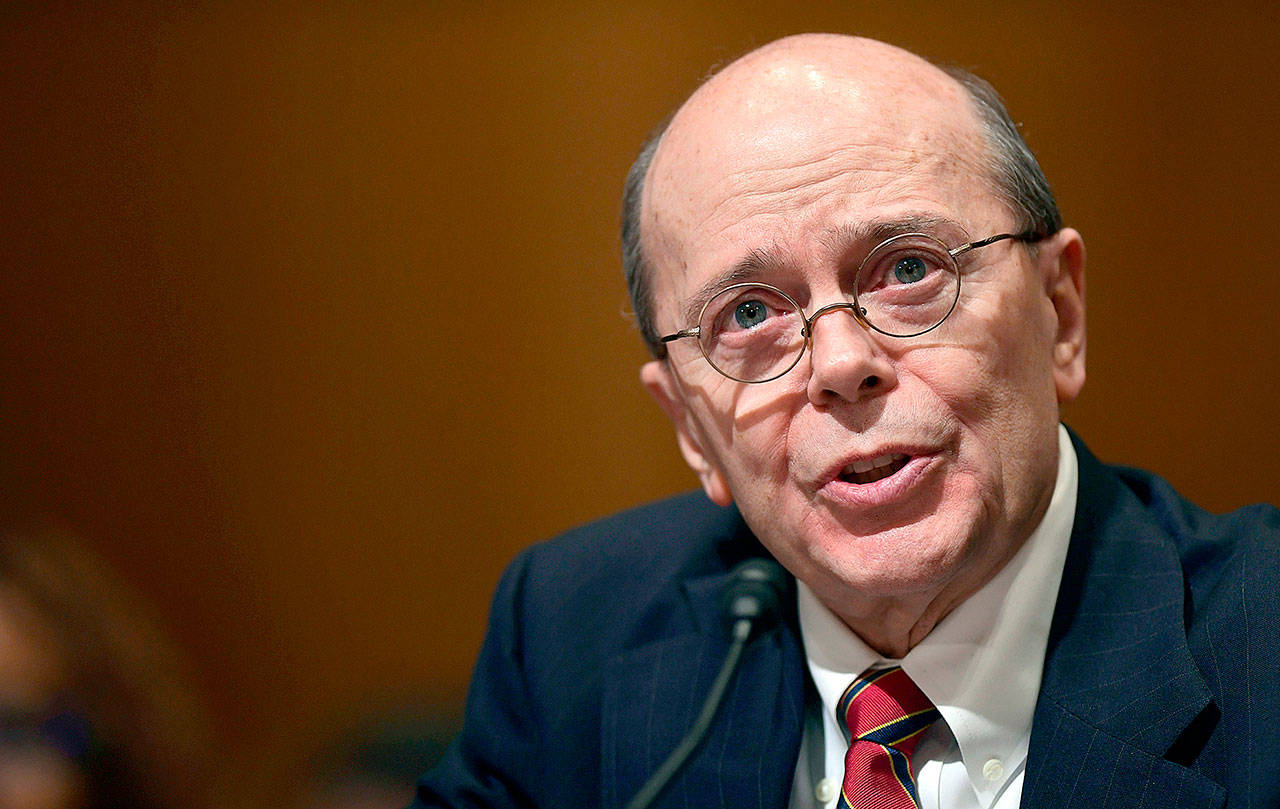By Marcy Gordon / Associated Press
WASHINGTON — The acting head of the IRS says the current tax-filing season has gone well, while acknowledging the tough challenge the cash-strapped agency faces of administering the new tax law that will affect 2019 returns.
Acting IRS Commissioner David Kautter told Congress Thursday that some 79 million refunds totaling about $226 billion have been issued as of April 6, averaging $2,900 — up $13 from last year. Around 80 percent of returns filed claimed a refund. The final year under the “old” tax regime, 2017, has to be accounted for by taxpayers in returns by Tuesday.
The agency, pummeled for years by criticism from congressional Republicans and funding cuts, now must administer and enforce the most sweeping overhaul of the U.S. tax code in three decades.
Kautter told the Senate Finance Committee that the new law “requires extensive work by the IRS this year and next.” The paperwork alone is immense: about 450 forms and instructions will have to be amended.
Sen. Orrin Hatch, R-Utah, the panel’s chairman, said the new burden falls on an agency with a history of mismanagement and taxpayer abuse that is laboring under funding and technology deficits.
“On the one hand, the IRS has made marked improvements in recent years,” Hatch said. “But, on the other hand, it is an agency stuck in the past. It relies on software and core processing systems designed during the Kennedy administration. IRS employees routinely have to manually input return information into agency computers, and often require taxpayers to send information via fax machine.”
The massive Republican tax-cut legislation was muscled through Congress late last year and now stands as President Donald Trump’s marquee achievement. It took effect Jan. 1, billed as a huge boon for the stressed middle class and a key GOP selling point in the midterm elections this year. The $1.5 trillion package provides generous tax cuts for corporations and the wealthiest Americans, and more modest reductions for middle- and low-income individuals and families.
The tax cuts for corporations are permanent, while those for individuals and families expire in 2026. Nonpartisan tax experts project that the law will bring lower taxes for the great majority of Americans, though not all.
Already taxpayers have seen a tangible result of the new tax law. Millions of working Americans saw bigger paychecks starting early in the year. Companies and payroll service providers — and their computer systems — had to adjust to new withholding tables crafted by the IRS to reflect changes in tax rates for different income levels under the new law.
The tax bill or refunds for the changes won’t come in until 2019.
For this filing season, “I haven’t heard about any disasters,” says Howard Gleckman, senior fellow at the Urban Institute. And he gives the IRS credit for doing a good job this season of keeping up with scams.
Still, the numbers that really count are the IRS budget figures. After years of Congress’ cuts, “The IRS doesn’t have remotely enough money to do what it needs to do,” Gleckman said. “There’s going to be huge challenges out there.”
During President Barack Obama’s tenure, Republicans controlling the congressional purse strings accused the IRS of liberal bias and unfair targeting of conservative tax-exempt groups.
This year, with the new tax law looming, Congress was more willing to open its wallet for the IRS and rejected to an extent the Trump administration’s proposed cuts. But it ended up cutting in other areas, with the result that the agency budget is about the same — $11.5 billion — as in recent years.
Kautter is doing double duty as the assistant Treasury secretary for tax policy. He is the acting head of the IRS. Trump has nominated as its new permanent chief Charles Rettig, a tax lawyer who has represented thousands of individuals and companies in civil and criminal tax matters before the agency. Rettig must be confirmed by the Senate.
The House tax-writing committee, meanwhile, approved a series of bipartisan bills Wednesday aimed at changing the way the IRS operates. They would, for example, create an independent appeals process to help taxpayers resolve disputes with the agency, bolster programs that provide tax assistance to low-income, elderly, disabled people and immigrants, and crack down on fraud by tax preparer businesses that prey on unwary people. The agency would have to submit a plan for revamping its customer service strategy.
The Ways and Means panel dispatched the legislation to the full House for a vote.
Talk to us
> Give us your news tips.
> Send us a letter to the editor.
> More Herald contact information.

























